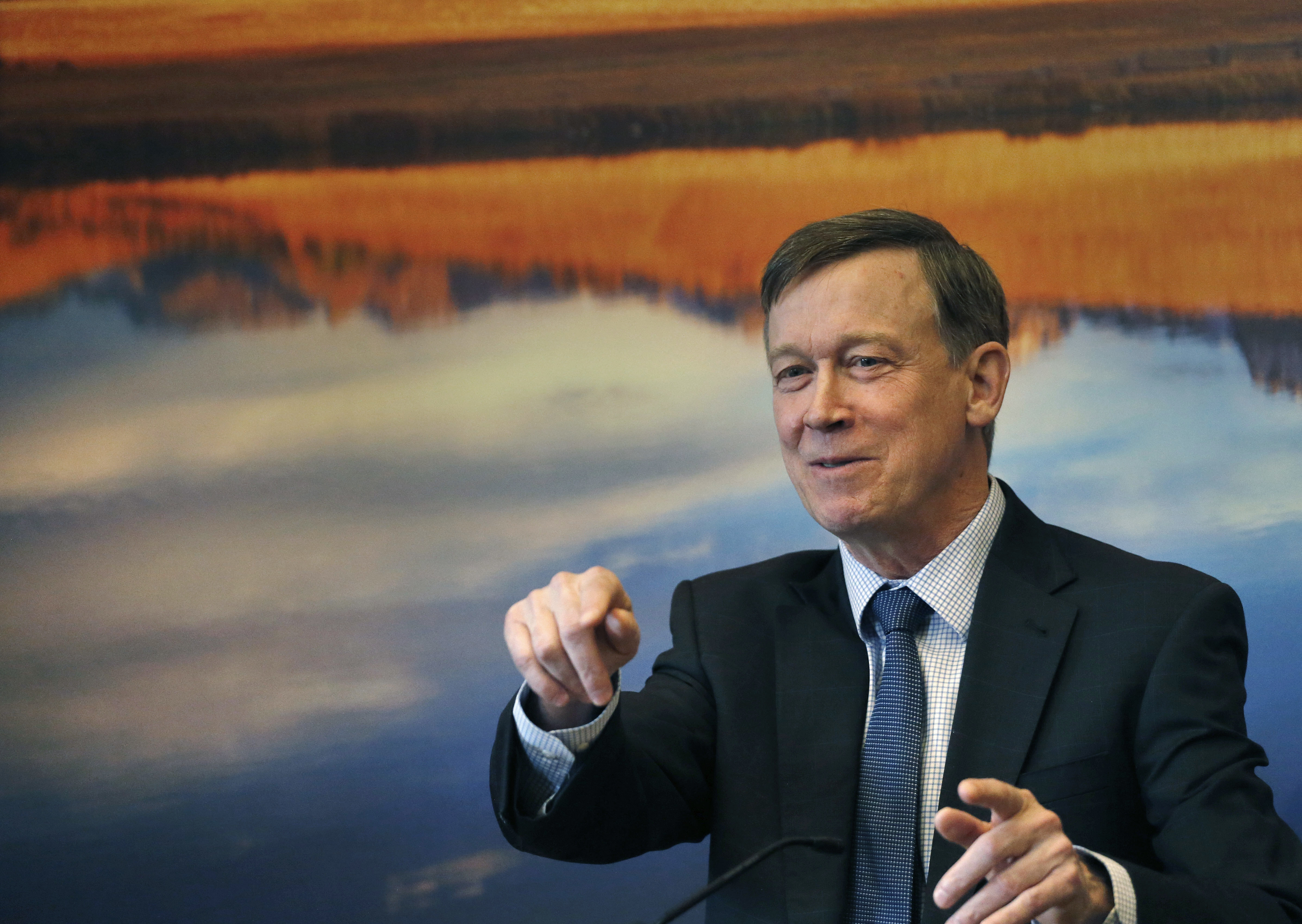
Just weeks before the Colorado Legislature wrapped up its 2015 session, Gov. John Hickenlooper introduced a proposal that, in a few years, would result in the state having more money to put towards transportation and education, but reduce refunds to taxpayers. Though the proposal failed, Hickenlooper said he'll continue to push it in coming months.
The governor had proposed reclassifying a fee paid by hospitals so that it does not count against the state's Taxpayer's Bill of Rights, or TABOR, limit. TABOR dictates that if the state collects more than a certain amount of tax revenue, it must return excess revenue to citizens. Hickenlooper said other fees don't count against that limit, and the hospital fee shouldn't either.
The proposal didn't get any Republican support in the session that ended last Thursday, in part because lawmakers said they didn't want to take any TABOR refund money back from taxpayers.
Hickenlooper said he took the idea public after months of working behind the scenes to build momentum for it.
"We got to the point where it didn't seem likely that we were going to achieve a compromise, so we wanted to let the public have a debate, because there are two sides to the argument," the governor added.
He said he still believes a compromise is possible, and said he will work on that for next year's legislative session.
Along with the governor's tax proposal, in his regular conversation with Colorado Matters host Ryan Warner, Hickenlooper said he's "leaning towards a veto" of two bills that could ban red light cameras and photo speeding enforcement. He also talked about his support for ending a ban on crude oil exports and reflected on Denver's 10-year plan to end homelessness, which started under his leadership a decade ago. Excerpts of the conversation are below. Hear the entire conversation by clicking "listen" above.
Gov. Hickenlooper on whether he'll veto two traffic camera bills
"I won't go on the record yet, because we're still looking, there are some competing studies that argue different things... I'm certainly leaning towards the veto. As somebody said to me, if you don't like getting a speeding ticket from photo radar, stop speeding...
"Part of this, as is often the case, it's hard to get the real facts. Part of me wants to go to the Department of Transportation and say, 'Why don't we do our own study,' and once and for all, in Colorado, try and gather the data and see does this make a difference or not?"
On Hickenlooper's support for ending the federal ban on crude oil exports
"We live in a time of free markets almost all over the world. And a big part of this is our refineries are not capable, they're not set up to refine all of the crude oil that we have... Even recognizing that we want to keep moving towards more wind energy, more solar energy, we haven't backed off on our commitment for either of those forms of energy... but having a blockage in the system, I don't see how that's a positive contributor to our long-term outcomes."
Hickenlooper is one of the most high-profile Democrats to add his support to calls to remove the export ban.
On whether he plans to grant a reprieve from execution to James Holmes, if he gets the death penalty for his attack on an Aurora movie theater
"I don't want to get involved in that case; the case is going on so I can't really comment... These cases take so long, all of them, that it's hard for me to imagine a case getting to my desk while I'm governor again."
On Denver's 10-year plan to end homelessness, which started under his leadership
"Right in the middle of the 10-year plan we had the worst recession in 100 years... [but] no one is more disappointed than I am... and we always knew that we weren't going to end homelessness. That's a marketing effort to get everyone's attention and say, 'Let's really work on this...' because homelessness is being recreated all the time. We have economic conditions that are causing it."









